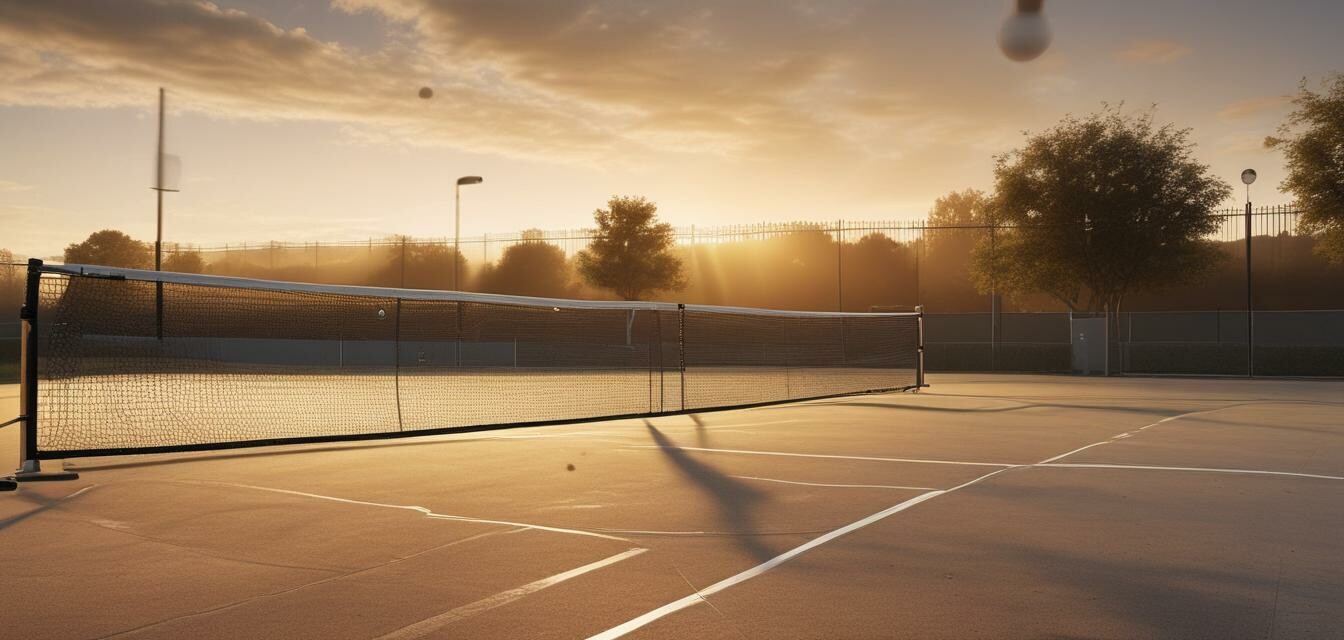
The Mental Game of Pickleball: Strategies to Win
Key Takeaways
- The right mindset can significantly enhance performance in pickleball.
- Strategies such as visualization, mindfulness, and positive self-talk are crucial.
- Understanding your opponents helps in adjusting your game plan.
- Regular practice of mental techniques improves resilience during matches.
In the fast-paced world of sports, the psychological component can be just as crucial as physical skills. Particularly in pickleball, where quick reactions and sharp strategies are essential, honing your mental game can set you apart from your competitors. This article will explore how to cultivate a winning mindset and provide practical strategies that can enhance your performance on the court.
Understanding the Mindset in Pickleball
A strong mental game reflects a player's ability to focus, remain calm under pressure, and adapt to changing circumstances in a match. Here's why mindset matters:
- Emotional Control: Keeping your emotions in check can prevent negative thoughts from affecting your play.
- Concentration: The ability to stay focused on the game and strategy is vital.
- Confidence: A strong belief in your abilities can significantly boost performance.
Strategies to Enhance Your Mental Game
Implementing effective mental strategies can transform your approach to the game. Here are several key techniques to consider:
1. Visualization Techniques
Visualization involves creating a mental image of yourself successfully executing plays. This technique can enhance your confidence and clarity in matches. Try these steps:
- Find a quiet spot and close your eyes.
- Imagine yourself playing a match, focusing on techniques and strategies you want to implement.
- Visualize overcoming obstacles—like making the perfect serve.
2. Mindfulness Practices
Practicing mindfulness can help you stay grounded during matches. Here are some effective ways to incorporate mindfulness into your routine:
- Breathing Exercises: Take deep breaths to center yourself before each point.
- Body Scan: Observe physical sensations without judgment to cultivate awareness of tension.
- Focus on the Present: Concentrate on each point rather than the overall outcome of the match.
3. Positive Self-Talk
Your inner dialogue can heavily influence your performance. Here's how to cultivate positive self-talk:
- Replace negative thoughts with affirmations (e.g., "I am a skilled player").
- Encourage yourself after mistakes rather than dwelling on them.
- Create a mantra to repeat during matches, such as "Stay focused, stay calm."
4. Developing a Pre-Match Routine
A consistent pre-match routine can help trigger a winning mindset. Consider the following elements:
- Warm-Up: Include physical and mental warm-up exercises.
- Review Goals: Remind yourself of your objectives for the match.
- Calming Techniques: Use techniques like meditation or deep breathing before starting.
5. Learning from Competitors
The mental game isn't just about self-control; understanding others can provide advantages. Here’s how:
- Observe your opponents’ tendencies and patterns.
- Adapting your strategies based on their strengths can give you an edge.
- Maintain a flexible mindset to adjust tactics when necessary.
Important Factors Influencing Mental Performance
It’s important to recognize key factors that can influence your mental performance:
| Factor | Description |
|---|---|
| Stress Management | Learning to manage stress will help you maintain focus and composure. |
| Preparation | Feeling prepared increases confidence and reduces anxiety. |
| Experience | Increased experience contributes to better decision-making during matches. |
Conclusion
Enhancing your mental game in pickleball is not just about training your mind; it’s about creating a holistic approach that integrates mental and physical skills. With these strategies, you can develop a winning mentality that translates to improved performance on the court. For further insights, explore our Tips and Strategies category for more techniques to help elevate your game.
Pros
- Increased confidence during matches
- Ability to manage stress effectively
- Enhanced focus and concentration
Cons
- Requires consistent practice and dedication
- May take time to see significant improvements